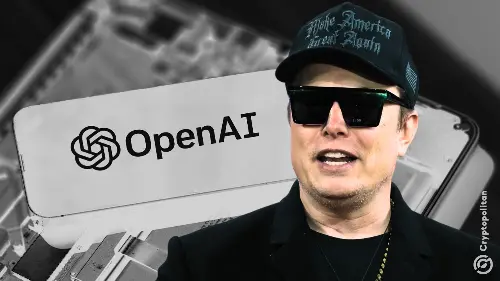
Elon Musk has pushed back against OpenAI’s claim that he’s led a “relentless” campaign to undermine the AI startup, calling the accusations baseless in a new court filing.
Filed late Wednesday, the response from Musk’s attorney urges a federal judge to dismiss OpenAI’s allegations that the billionaire has misused legal action, media appearances, and social media to sabotage the company’s progress, all in favor of boosting his own AI venture, xAI.
The filing follows OpenAI’s recent decision to shelve its controversial plan to become a for-profit entity. Instead, the ChatGPT developer announced it would reorganize its for-profit arm as a public benefit corporation while keeping overall control under its nonprofit umbrella.
Despite the apparent compromise, Musk’s lawyer, Marc Toberoff, argued that the revised structure “changes nothing,” suggesting that Musk intends to press forward with his legal case against OpenAI and CEO Sam Altman.
Musk faces Altman in looming legal showdown over AI ethics and OpenAI’s shift to profit
Toberoff argued that the ChatGPT maker’s counterclaims fail as a matter of law and confirm the company’s betrayal of its charitable mission and the public. He emphasized that the nonprofit status of the AI firm is merely an obstacle to Sam Altman’s profit-driven ambitions.
The legal feud between Musk and Altman — who co-founded OpenAI in 2015 — has escalated over the startup’s shift toward commercial partnerships, particularly a multibillion-dollar deal with Microsoft that began in 2019, a year after Musk left the board. Musk launched xAI in 2023 as a rival in the fast-growing generative AI sector.
OpenAI filed a countersuit in April, accusing Musk of deliberately trying to damage its reputation and relationships with investors and customers. “Musk has tried every tool available to harm OpenAI,” the company claimed.
A federal judge in Oakland has scheduled a trial for March 2026 that puts Musk directly against OpenAI CEO Sam Altman in a high-stakes battle over the future of AI ethics, nonprofit governance, and corporate accountability.
Musk founded his rival AI company, xAI, in 2023, positioning it as an alternative committed to transparency and public benefit. Meanwhile, OpenAI has accused Musk of using legal tactics, media campaigns, and online influence to destabilize its operations and relationships with partners.
OpenAI’s commercial rise accelerates with $300B valuation and landmark banking deal
Despite Elon Musk’s feud with the AI company, it’s not slowing down. It recently achieved a stunning $300 billion valuation in a fund-raising led by SoftBank Group, underscoring investor belief in its rapidly growing commercial promise. Yet this achievement has not gone unchallenged. OpenAI’s pivot toward commercial enterprises has stoked doubts about whether the organization has strayed from its nonprofit intentions, even as Musk has filed lawsuit after lawsuit.
Adding to those concerns and emphasizing OpenAI’s swift commercial embrace is a new partnership with OakNorth Bank. The London-based business lender said this week it is integrating OpenAI’s generative AI technology into the core of its business. From loan agreement drafting to internal audits, OakNorth plans to roll out bespoke GPT tools for its hundreds of staff, targeting double-digit efficiency gains across the business.
This collaboration signals a major step in OpenAI’s expansion beyond the tech industry and into traditional financial services. As more institutions follow suit, the company increasingly positions itself as a dominant force in enterprise AI.
But while its rising valuation and partnerships reflect remarkable growth, critics—Musk chief among them—argue that these commercial ambitions underscore the need for closer scrutiny. In his view, OpenAI’s evolution from nonprofit ideals to market dominance strengthens his case against the company.
Cryptopolitan Academy: Tired of market swings? Learn how DeFi can help you build steady passive income. Register Now
